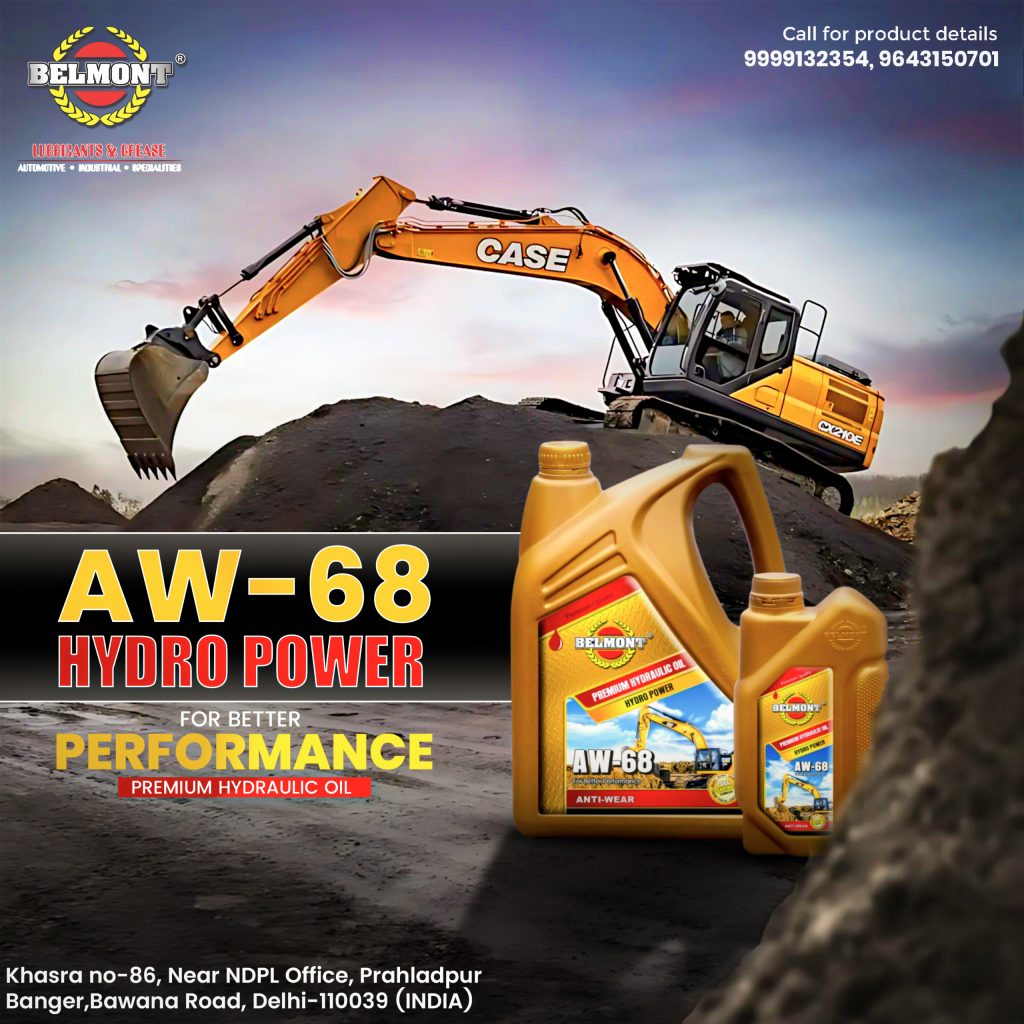
Hydraulic oil plays a critical role in the smooth functioning of tractors, excavators, industrial machines, and heavy-duty vehicles. With the growing demand for efficiency and durability in 2025, one key question remains common among users: Should you choose synthetic hydraulic oil or mineral hydraulic oil?
In this blog, we will explore the differences, advantages, and real-world applications of synthetic vs mineral hydraulic oil, helping you make the right choice for your machinery.
What is Hydraulic Oil and Why is it Important for Machinery?
Hydraulic oil is the lifeblood of any hydraulic system. It transfers power, lubricates moving parts, prevents rust, and helps control heat. Without the right hydraulic oil, machines face:
- Increased wear and tear
- Reduced efficiency
- Higher maintenance costs
- Risk of sudden breakdowns
Choosing between synthetic hydraulic oil and mineral hydraulic oil is therefore not just about cost—it directly impacts performance and long-term reliability.
Understanding Mineral Hydraulic Oil
Mineral hydraulic oil is derived directly from refined crude oil. It has been widely used for decades in tractors, loaders, JCB machines, and other construction equipment.
Key Features of Mineral Hydraulic Oil:
- Affordable and easily available
- Good lubrication for standard operations
- Adequate protection against rust and corrosion
- Ideal for machines with moderate workloads
Limitations:
- Less resistant to extreme temperatures
- Shorter oil life compared to synthetic
- Breaks down faster in demanding conditions
Best suited for: Light to medium-duty machines, agriculture equipment, and users seeking cost-effective solutions.
Understanding Synthetic Hydraulic Oil
Synthetic hydraulic oil is engineered using advanced chemical processes, offering better stability and performance under high stress.
Key Features of Synthetic Hydraulic Oil:
- Superior thermal and oxidative stability
- Longer oil life (extended drain intervals)
- Performs well under high pressure and extreme temperatures
- Provides smoother operation and higher efficiency
Limitations:
- Higher cost compared to mineral oil
- Over-spec for machines that don’t require heavy-duty performance
Best suited for: Heavy-duty machinery, industrial applications, construction equipment, and environments with extreme heat or cold.
Synthetic vs Mineral Hydraulic Oil – Head-to-Head Comparison
| Feature | Mineral Hydraulic Oil | Synthetic Hydraulic Oil |
|---|---|---|
| Cost | Affordable | Expensive but long-lasting |
| Oil Life | Shorter | Extended drain intervals |
| Temperature Stability | Moderate | Excellent (high & low temps) |
| Lubrication Quality | Adequate | Superior |
| Best For | Tractors, light-duty machines | Heavy machinery, industrial equipment |
Which Hydraulic Oil Should You Choose in 2025?
The choice depends on your machinery, workload, and budget:
- Choose Mineral Hydraulic Oil if:
- You run tractors, harvesters, or light construction machines
- Your workload is moderate and doesn’t demand extreme performance
- You want an affordable solution with easy availability
- Choose Synthetic Hydraulic Oil if:
- You operate excavators, bulldozers, or heavy-duty industrial machines
- Your equipment runs in extreme heat, cold, or high-pressure conditions
- You want longer oil life and reduced downtime
In 2025, more industries are shifting towards synthetic hydraulic oil due to its efficiency, but mineral oil remains the most economical choice for agriculture and small-scale users.
Belmont Lubricants – Your Trusted Hydraulic Oil Partner

At Belmont Lubricants, we manufacture a complete range of synthetic and mineral hydraulic oils designed for Indian weather and working conditions.
Whether you need ISO 32, ISO 46, ISO 68, or ISO 100 hydraulic oil, Belmont offers:
- High-quality base oils and additives
- Excellent wear protection
- Extended equipment life
- Cost-effective solutions for every segment
If you are looking for reliable hydraulic oil suppliers, you can also explore:
- GreaseSuppliers.com – For industrial greases and specialty lubricants
- EngineOilManufacturers.in – For premium automotive and industrial lubricants
Related Blogs You Should Read
- Which Engine Oil is Better: 10W-30 or 5W-40?
- 10W-30 vs 20W-40 Engine Oil – Best for Indian Weather
- 80W-90 vs 85W-140 Gear Oil – Which is Better for Your Vehicle?
- Why is My Car Coolant Level Dropping but No Leak?
Final Thoughts
Both synthetic and mineral hydraulic oils have their place in the market.
- If budget is your main concern and your equipment is light-duty → go with mineral hydraulic oil.
- If you need reliability, efficiency, and longer service life for heavy-duty machines → synthetic hydraulic oil is the smart choice.
For the best results in 2025, always choose hydraulic oil from a trusted brand like Belmont Lubricants, ensuring consistent quality and performance.
Frequently Asked Questions (FAQs)
Q1. What is the difference between synthetic and mineral hydraulic oil?
Synthetic oil is engineered for higher stability, better temperature resistance, and longer service life, while mineral oil is refined from crude oil and is more cost-effective.
Q2. Which hydraulic oil is best for Indian weather in 2025?
For extreme temperatures and heavy-duty use, synthetic hydraulic oil is recommended, while mineral oil is suitable for standard machinery under normal conditions.
Q3. Can I mix synthetic and mineral hydraulic oil?
It is not recommended because mixing can reduce performance and cause damage. Always stick to one type as per manufacturer’s recommendation.
Q4. Is synthetic hydraulic oil worth the cost?
Yes, synthetic hydraulic oil lasts longer, reduces wear, and ensures better efficiency, making it cost-effective in the long run.
